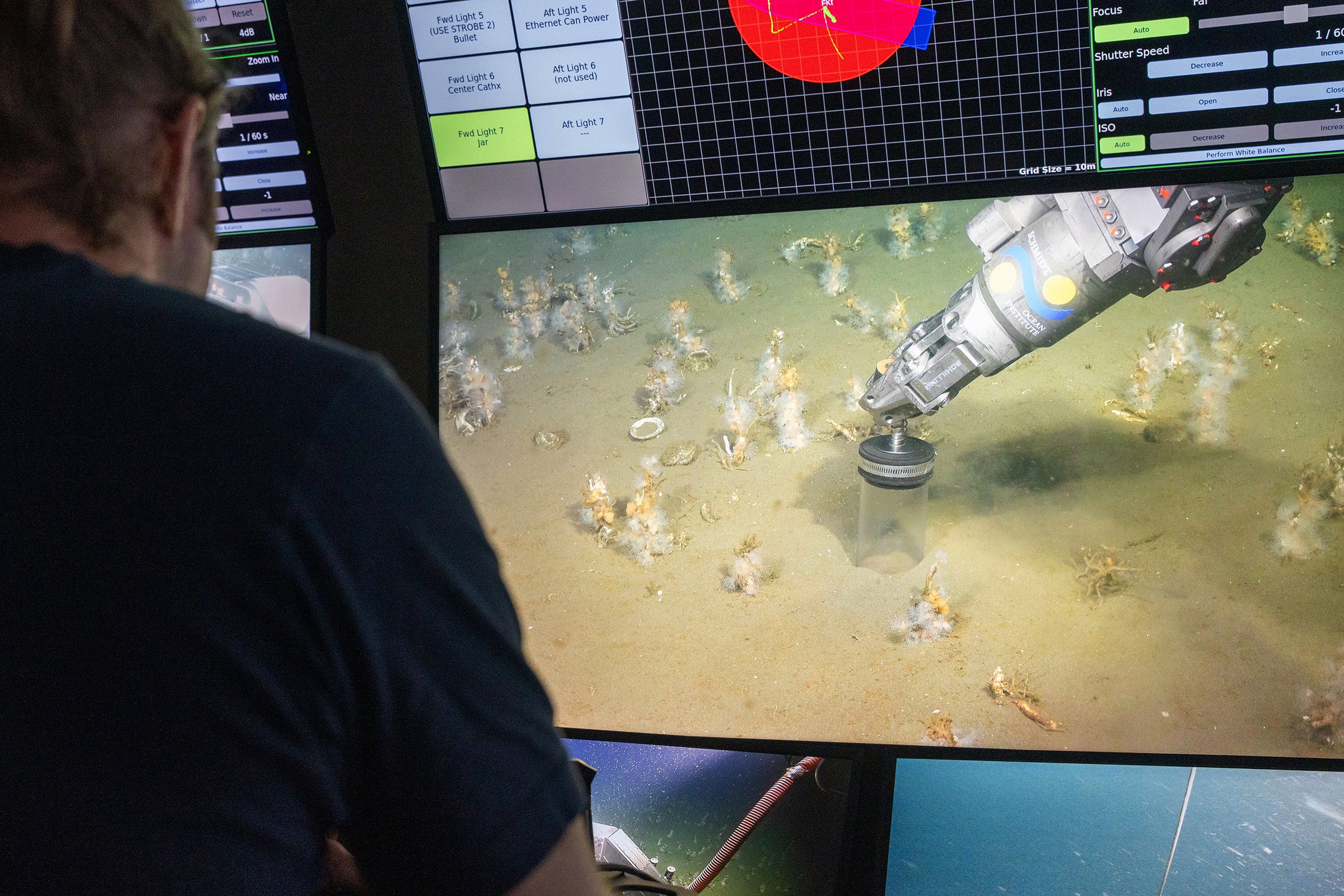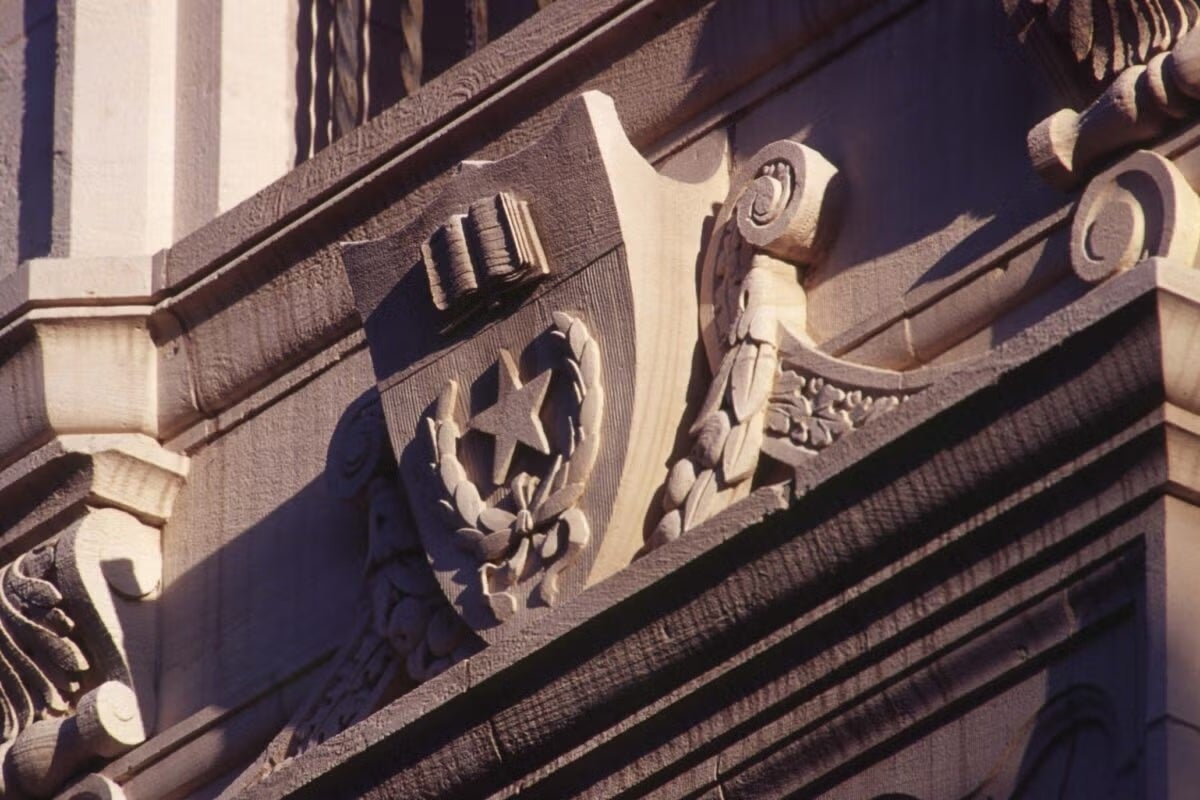Bill Press of UT Austin Publishes a Memoir on his Storied Career
Across domains, Press has contributed to many fields and institutions, which he writes about in a newly published memoir.

Bill Press
Bill Press has had a remarkable and dynamic career—advising two U.S. presidents via their councils on science and technology, being a professor of astronomy and physics at Harvard, serving as deputy director of Los Alamos National Laboratory, and now on the faculty at The University of Texas at Austin in both computer science and integrative biology. Over the years, he’s been both a mentor and mentee for recipients of Nobel Prizes. And, he interacted with many of science’s luminaries, people such as Stephen Hawking, Kip Thorne, Richard Feynman, James Watson, Freeman Dyson and many more.
We sat down to talk with Press about his new book, More Than Curious: A Science Memoir, and about his storied career, which spans computational biology, physics and astronomy. His book gives readers a peek into many groundbreaking and insightful moments, and his current research applies mathematical and statistical methods across both physical and biological sciences, as well as to international security.
What led you to write this memoir?
There are books, not necessarily written in a smooth, professional manner, but written by someone who lets you into their life and tells you what they thought was important. There used to be a great series of books that were written by working scientists, funded by the Alfred P. Sloan Foundation. Some of them were beautifully written books. But the ones that I liked better were the ones where the authors just told you about their scientific lives, and you got to see things the way they saw them, unvarnished. I didn’t think my own story had any smooth, grand arc, but I still had stories worth telling. And I’ve always liked to write. There’s a Russian expression, ‘writing for the drawer,’ meaning nobody else gets to read it. But I decided this one was worth a little spreading around outside the drawer.
In your book, you write about your father, who was a renowned scientist. You also wrote about, as a child, having scientists like Beno Gutenberg and Charles Richter, who together invented the Richter scale, spend time in your home. Do you think that all sparked a desire in you to pursue science?
It did. Growing up, I think I always imagined that I would do something in science. I didn’t feel any pressure from either of my parents to become the kind of scientist I did, but it just seemed a very natural thing.
I have a good friend whose inspirational story is one of growing up in a working class family, getting into MIT and eventually becoming quite a distinguished physicist. When I told him I was writing my memoir, he joked, “Your memoir, Bill, let me see if I have it right: It’s about how you succeeded despite having every advantage.” And then he asked, more seriously, “Does anybody want to read about that?” And I said, “I don’t know. I’ll find out.” Without doubt, I was lucky to have those advantages.
There’s a chapter in your book detailing your experience on the President’s Council of Advisors on Science and Technology for the Obama administration. [Editor’s note: Press served as vice chair of PCAST under Obama and serves currently as a member under President Biden.] What were some takeaways from that experience?
We met in the White House with Obama a few times a year, which, over eight years, added up to more than 20 meetings. We saw the “other Obama,” whom I think of as the University of Chicago law professor — very smart, but also very critical. We presented scientific reports to him as an independent advisory group. It wasn’t that he was trying to stop us from saying what we thought, but he was unsparing in his judgment about whether our recommendations would have any traction.
In the best cases, [Obama] would completely get it. He would essentially grab [the report] and run with it, asking a high-level member of his staff to follow up. This taught me that recommendations have to be actionable.
Tell me about your work with JASON, the independent advisory group providing reports to the U.S. government related to defense science and technology.
The JASON Advisory Group is by now a remarkable institution. It’s been around now for more than 60 years. Originally, during the Cold War, the members strictly focused on defense problems. Over the years, it’s broadened. We work for the Bureau of the Census, for example, on how to ensure privacy in future censuses when they’re up against computer hacking, AI, and new ways of stealing people’s privacy.
We now work a lot for the Department of Energy on energy-related problems. On any topic, we learn from its real experts, and we learn about the related national needs from the people in government who have these needs. And then, we [scientists] write reports with recommendations that often are trying to make the connections: You have this problem. And over on the academic side, there is this expertise. How do we get the two together? What would actionable recommendations be? I’m proud to be part of it.
Both your doctoral advisor, Kip Thorne, and a doctoral student you advised, Adam Riess, won Nobel prizes for their work. What did you learn from them?
You make choices about your scientific style. You might decide that when you’ve got an important problem, you’re going to hold on to it, you’re going to stick with it and see it through, even not knowing whether that’s going to take one year, two years, ten years or the rest of your career. That was Kip’s style, and Adam’s style. And I think that’s wonderful. But it isn’t my life story or career. I have a fairly short attention span in science. I like to do different and new things. That alone meant that I never was going to win a Nobel Prize. But it has advantages. It’s allowed me to change fields in science a couple of times, and to do a bunch of different things.
What’s one rewarding takeaway from your career as a scientist?
I was in the first wave of theorists to be working on black holes, before they were even discovered observationally. Even though they were predicted by Einstein’s theory of general relativity, astronomers didn’t believe anything that exotic could exist. In those days, with my longtime collaborator Saul Teukolsky, a professor at Cornell, my biggest contribution was to show that black holes — specifically rotating black holes — were stable. Once you formed them, they wouldn’t just belch out a huge gravitational wave and disappear. So when we did that work, it got noticed. It was written about in the science media — it was a big thing.
But that discovery is now completely lost in history. It was, in a sense, unnecessary. Why? Because once you can observe something directly, you don’t need theory to tell you that it exists. And by now there are these beautiful pictures of rotating black holes, directly imaged. But that doesn’t mean that the theoretical work was not worth doing in its time. Predicting observations, or the results of experiments, is a part of the fun of being a theorist in any field. I was in astrophysics, and now I work on computational biology or systems biology. You’re trying to predict things before they’re seen. And then experimenters can know what to look for.
Looking back at your career, what is something that you’re proud of?
I’m proud to have worked in and contributed to many different fields. I started off as a theoretical physicist. That’s when I did the black hole stuff. Then, for many years, I was an astrophysicist, and then a cosmologist, thinking about the Big Bang and the universe. Then I went to Los Alamos and learned what it took to run a large research organization. When I realized I needed to get out of management at Los Alamos, the question was, “Well, what should I do now?” Happily, I had the opportunity to switch fields again, to biosciences, or specifically to computational biology. I could bring with me a legacy of computational work that I had done in physics and astrophysics.
Something else that I’m proud of is that I’ve worked for long periods of time in both an outstanding private university, Harvard, and an outstanding public university, UT Austin. I’m a big fan of the public universities. I think the public universities are a part of American life that we would be so much worse off without.



